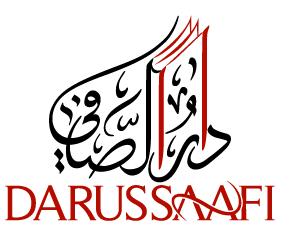The basis for this issue is the following Hadith from Zaid ibn Arqam (may Allah be pleased with him):
كنا إذا سلم علينا النبي صلى الله عليه وسلم قلنا وعليك السلام ورحمة الله وبركاته ومغفرته
If we used to give the Prophet (ﷺ) the greetings of peace he used to say: May peace be upon you and the mercy of Allah and His blessings and His forgiveness
Shaikh al-Albani graded it jayyid in o Silsilatus-Saheeha (no. 1449)
Also Shaikh Saleem ibn ‘Eid al-Hilali rahimahullah graded it Hasan in his explanation of Riyaad as-Saliheen [See: Bahjatun-Nadhireen (2/132)]
Some have mentioned that Shaikh al-Albani rahimahullah has retracted from this statement. Other Scholars have graded the narration weak. For example, Shaikh Abdul-Muhsin al-‘Abbad indicated towards that here: https://www.youtube.com/watch?v=TgS_gKpyTVo
Hafidh Ibn Hajar rahimahullah said: “These Ahaadith [on the issue] are weak, if they are joined together they strengthen what they agree upon of the legislation of increasing upon (وبركاته) [in the greeting]” [Fathul-Bari (11/6)]
Shaikh’ al-Albani’s argument was that one can add (مغفرته) in the reply, not in the initiation of the greeting.
Shaikh al-Albani rahimahullah said:
“So like that we notify some of our brothers who do not understand this issue correctly and they greet us with the addition (مغفرته). So we say: the greeting ends at (وبركاته). This is the Sunnah and this is what Ibn ‘Umar (may Allah be pleased with him) said. He was eager for the people to follow the Sunnah. However, this man himself (i.e. Ibn ‘Umar) used to reply to the greetings with the addition (مغفرته). So he differentiate between starting the greeting with it and replying with it. So in the initiation of greeting, it is not allowed to increase upon (وبركاته).However, in the reply to the greeting, it is allowed to increase upon (وبركاته)…” [Silsilah Huda wan-Nur no. 1818]
Ibn ‘Abbas and Ibn ‘Umar (may Allah be pleased with them) were against initiating the greeting with (مغفرته) as well. ‘Ata ibn Abi Rabah said: One day Ibn ‘Abbas (may Allah be pleased wit him) came to them in a sitting. So Ibn Abbas (may Allah be pleased with him) said: Assalamu alaykum wa rahmatullahi wa barakatuhu. So I (Ata) said: Assalamu alaykum wa rahmatullahi wa barakatuhu wa maghfaratuhu. He said: Who is that? I said: Ata. He said: stop at barakatuhu. Then he recited: “The Mercy of Allah and His Blessings be on you, O the family [of Ibrahim (Abraham)]. Surely, He (Allah) is All-Praiseworthy, All-Glorious.” [11:73] [Reported by Bayhaqi in Shu’ab al-Iman no. 8487 and the verifier said the chain is Jayyid]
If, however, someone initiates the greeting with the addition (مغفرته), then one can respond with the same or more. Even though it is not established in the Sunnah, it is allowed to increase on (وبركاته).
Imam Shawkani rahimahullah said in the Tafsir of the verse: “When you are greeted with a greeting, greet in return with what is better than it, or (at least) return it equally” [4:86]
“To increase in the reply to the one who initiated with of greetings. If the one who initiated says: Assalamu Alaykum, then the one responding says: Alaykum as-Salam wa rahmatullah. If the one who initiated increases in wording, then the one who replies increases in in wording like: (وبركاته ), (ومرضاته ), (وتحياته)”
[Fathul-Qadeer (1/500)]
So one can respond with similar or more as it is allowed.
Shaikh Fawzan (may Allah preserve him) was asked:
Question: Is it from the Sunnah when responding to the greetings to say: (مغفرته)?
Answer: “This is good. If he increases in the greeting, then this is good. If he adds: wa rahmatullahi wa barakatuhu wa maghfiratuhu, there is no harm. Yes”
[https://m.youtube.com/watch?v=G-wL2oy5-d0]
In sum, the narration of (مغفرته) is weak and it is not established in the Sunnah.
However, one can increase when responding to the greeting.
And Allah Knows Best
Faisal Ibn Abdul Qaadir Ibn Hassan
Abu Sulaymaan

